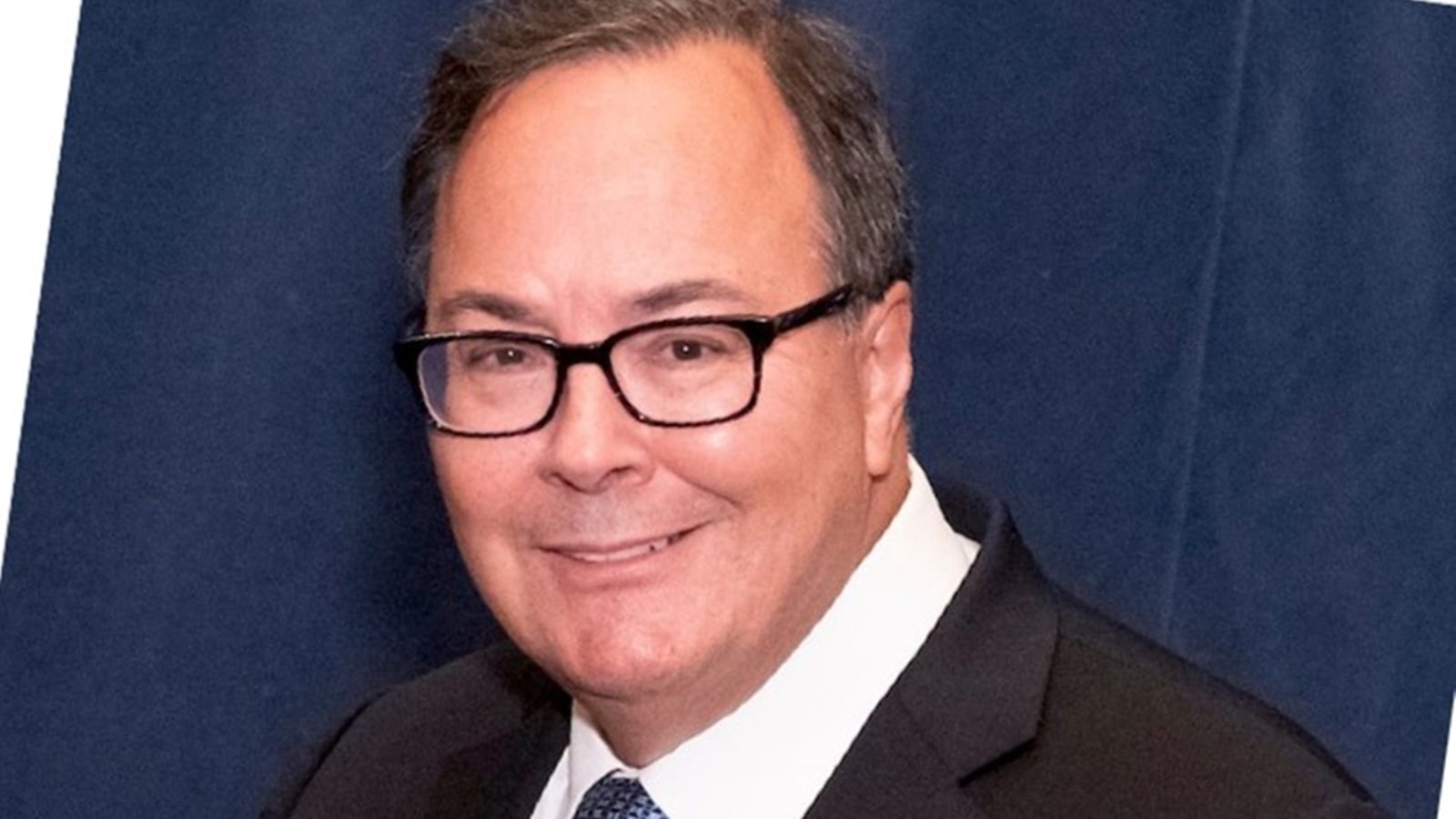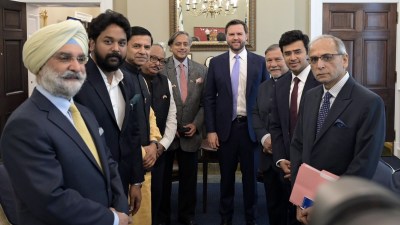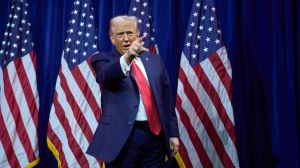Edward Knight, Chairman of USIBC (US-India Business Council) and Executive Vice Chairman of NASDAQ, sees a progressive ramping up of the collaboration between India and US, especially in the area of critical and emerging technologies. In an interaction with Anil Sasi and P Vaidyanathan Iyer over the course of an India visit last week, Knight said the need for upskilling of the Indian labour force and the continued development of infrastructure could be critical elements as the two countries look to build on their engagement. Edited excerpts:

So, our goal is to deepen the relationship between the two governments and the two business communities. It is a partnership, but it’s also a friendship between the two countries… And so, and in doing that, well, it means you have to listen as well as talk. And so we did a lot of listening, about where the country is going, what the priorities are. We had a very interesting trip to Mundra. We visited the port. We visited a solar panel manufacturing facility there. You know, you saw with your own two eyes how dynamic the Indian economy is, through all the activity in the port and all the expansion that’s going on there. We visited the GIFT city… and our delegation looked at exploring, you know, what is our role there, and how can we take advantage of the incentives there are to do business, and from NASDAQ’s perspective, the intention is to create a, if you will, an easier portal to the international markets for Indian investors. And we very much support that… But I think there is a need to educate people about GIFT city and to educate Americans generally about India, and it’s an ongoing process. But the momentum in the relationship is palpable. You can feel it here. You can fill it in the United States…
What are the concerns that USIBC members may have about doing business in India?
Well, I mean, there are two, if you will, what I call arrows in flight that we need to make sure hit their target one. One is the collaboration between the US business community and the Indian (community) to facilitate the ability of the Indian economy, and government, to manufacture their own defence capabilities and build on the foundation of their very strong technology base that you have here. And then there’s the initiative on critical and emerging technologies that has focused on, of course, the supply chain for chips. And helping to build out India’s role in that, which is very critical. But there are other topics that could fall within that one area that’s very important to NASDAQ is artificial intelligence and it is something that we apply in our business from day to day…
But the benefits that people are talking about around artificial intelligence and the more broad use of it, I think are not hype… This is a tool that could increase the efficiency of just about any operation by as much as 30 per cent. And it could unlock doors in the medical field. In terms of analysing the mountains of data that need to be analysed, could be analysed, in a more comprehensive way to find cures for cancer. So it is changing our economy and it is something that I think people should be excited about. And just like with electricity when it was first developed, there were safety issues. We work through those. We’ll work through these, and it’s an area where we can collaborate with India and help India develop its capabilities. You have the largest pool of English speaking, STEM educated employees. The strong legal system, the democracy that you have, all of those things create the foundation, I think for continued innovation in your economy…
How do you see critical technologies and collaboration in the semiconductor sector shaping up?
You see, Micron, for instance, announcing that it is going to build a chip assembly facility here in India. But I think there is, as in the United States, there’s a need to raise our game in this area. The nature of the hardware that’s needed to efficiently and effectively process the data, and the large language models that are used in AI require reimagination of datacenters, reimagination of how the Cloud operates. And, you know, that’s something that we have to do in the United States, but, but I think you also have to do it here in India. And we can learn from each other. So I’m hopeful that you will develop the capabilities to be innovative in this area like you have in so many other technology areas.
Will incentives alone be enough in pushing chip manufacturing?
Story continues below this ad
Well, we learned in speaking with your education minister, you know, there is a skilling need, in terms of upskilling of the workforce, to make them able to participate in this new enterprise of AI and its development. But this upskilling, and also the continued development of your infrastructure, are two things that are critical elements that when technology companies and other companies think about locating manufacturing facilities, it’s the strength of the infrastructure, the ability to get the raw materials, and how to get the finished products out and have the skilled employees and a stable workforce to to do the work… We saw in Mundra, the solar power panels being manufactured there, close to the largest port in India, for export to the United States, and I think you’re going to see more of that. That helps fulfil our goals with regard to renewable energy in the United States, but we’re doing it with the help of low cost Indian production. But you know, chip manufacturing is not an easy thing. It is one of the most complex things…
What are you views on the India-Middle East-Europe trade corridor and the role played by the US?
Well, obviously, it’s an initiative that we think would benefit the world economy and, when we had our roundtable I, I tried to explain that there’s a growing recognition that if something is good for the Indian economy, that helps the US economy. And if the US economy grows and is thriving, that helps the Indian economy, because we are connected. We are the two largest democracies. We do have a close friendship and partnership. There is this connection in the form of the Indian diaspora in the United States. Some will call it the diaspora dividend. You look at the top 100 companies listed on NASDAQ, 16 of them are led by Indians and of the Fortune 500 companies. I think 25 of them are led by Indians. And and it’s not just at the CEO level, it’s throughout the workforce and particularly the highly skilled workforce. And so there is already an Indian element. So this corridor, if it would facilitate trade, reduce friction and build economic relationships, obviously, it’d be very positive. But, we’ll have to see what develops..
What are the learning from the Big Tech issues that western democracies are grappling with?
Story continues below this ad
When you asked me that question, I saw in my mind the meeting that occurred at the US Chamber of Commerce that included your national security adviser to your Prime Minister and the national security adviser to our President, our Secretary of Commerce and representatives from your Commerce Department, to talk about emerging and critical technologies. And you had industry leaders from both countries. And that has been facilitated by the US government… and the Indian government. It’s a recognition that this can’t be done alone by the government alone, and that the business community needs to be led. And the business community is more than willing to do that and follow that lead but it does have a national security element to it. And this isn’t about the United States being insecure about India’s someday having a larger economy than it has, or China for that matter. It is about being able to secure our country in critical areas. And you need to be able to do the same. And technology is often a necessary element of that. And we just have to recognise it and prepare ourselves, but as countries with a very close relationship that share common democratic roots, it’s natural for us to come together on this and to share learnings…
And as I said, it’s happening in the technology industry across the board, the number of Indian employees located in India, of US companies. It’s growing every day… That doesn’t mean there’s something wrong with the US economy. It will help your economy, you’ll be stronger economic partner for us and we’ll be stronger in partnering with you. But I can tell you that on a human level between governments and between business leaders. There’s a lot of collaboration and trust and frankly, excitement about the state of the relationship. We do need to produce tangible progress. We raised expectations. Expectations are something you have to be careful about… One other thing that’s notable about your country and your leadership is how the Prime Minister and his government have used technology to bring advancement to the entire population, particularly those at the bottom of the pyramid. In, for instance, the technology stack that has been developed for all Indians, it’s quite breathtaking and innovative and other countries are looking at following in your footsteps. And there’s I know a lot of collaboration there
On the issue of Indian companies being allowed to do primary listing abroad, do you expect some progress?
I’m optimistic… India has its strengths. The US has its strengths. One of our strengths is, and NASDAQ is a manifestation of that, that we are a place where the global investor gathers. You have the largest derivatives market here in India too. So you have lots of investors too. But in terms of funding new companies, 80 per cent of the IPOs occur on NASDAQ. The five largest companies in the world are located on NASDAQ, other than (Saudi) Aramco, and those are all technology companies. And at one time, those companies weren’t even profitable. And in our lifetime, they’ve grown like that. So the ability to provide the capital for technology companies to grow around the world is something that we’re good at and that we can use to help India’s economy grow.


































